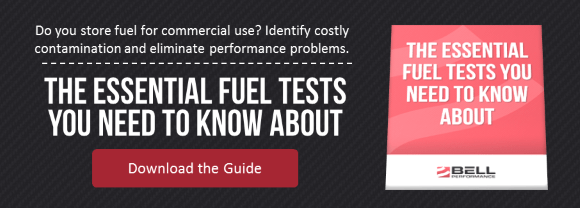The fuel treatment and fuel cleaning or polishing markets are ultra-competitive. They’re filled with entities that will tell you whatever they think you want to hear, to get your money. Even if it means exaggerating their real abilities to fix your problem.
We know this from experience, having essentially started the fuel additive industry with Robert Bell’s first formulation back in 1909. In the 105+ years since, thousands of fuel additives have sprung up, each trying to outdo the other with miracle claims about better mileage, performance, longer life yadda yadda…..Not to mention watching some fuel polishers employ dishonest methods to fool vulnerable customers into parting with hard-earned budget money because they were frightened or tricked into spending money they didn’t need to spend through inflated promises.
Over-Promising Can Lead To Undesirable Results
Both of these unpalatable scenarios have something in common – the customer was over-promised results that couldn’t match what chemicals or fuel polishing alone could actually do.
Chemical fuel treatments have their place, but can’t do everything. Fuel polishing is great for doing specific things that clean up fuel, but it has a limited scope to keep problems from recurring by themselves. Unfortunately, many customers over the years have been fooled into unduly expanding their expectations in these areas based on the promises of others.
One of the best things you can do to protect yourself (and your budget) in this area is to only partner with a company that advises a hybrid approach to your fuel job. Using a hybrid approach means they have the willingness to use both mechanical and chemical treatment to solve stored fuel problems.
A Hybrid Approach for the best solution
You need to use both elements because each one, by itself, has its limitations. But put them both together and you get a complete solution for stored fuel problems.
Fuel polishing is encompassed by “mechanical methods” – physical sweeping and vacuuming of the storage tank, along with fuel filtering. These mechanical methods are effective at removing physical contaminants from the fuel. But it doesn’t do anything to prevent associated problems from returning, nor does it really address what caused those contaminants to develop in the first place.
Fuel additives count as “chemical methods” and have their limitations, too. Chemicals can’t do everything, and there’s often a limit to the cost-effective scope they may have. If a large fuel tank has 200 gallons of water in it, chemical water absorbers may have problems getting all of that, whereas mechanical suctioning of the water would be most effective.
Either one, by itself, would not give you the best solution for your problem. A hybrid approach that looks at both sides – that’s the one you want.
You may be interested in these other posts:





